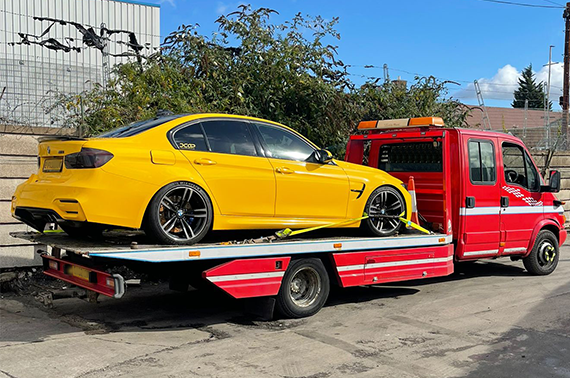20 Good Pieces Of Advice For Picking Auto Transport Websites
Wiki Article
Top 10 Tips For The Insurance Coverage Offered By A Car Transport Service
Here are 10 ways to help you evaluate the insurance provided by car transportation services:
1. copyright Insurance: Basics
Legally, car transport companies have to insure their cargos in order to protect their vehicles from damage while in transit. Verify what type of coverage is provided and the policy limit.
2. Request an Certificate of Insurance
Request for a Certificate of Insurance from the insurance company to confirm the policy details. This includes coverage amounts as well as the date of expiration and the kinds of risks protected (e.g. collision or theft, as well as weather-related damages).
3. Verify Your Liability Limits
Verify coverage limits. Most companies offer protection from $50,000 to $250,000 per car. However, make sure you have enough coverage to cover the cost of your vehicle.
4. Determine the Covered and uncovered Aspects
Make sure you read the policy thoroughly to see if there are any exclusions. Certain policies might exclude damage caused by:
Acts arising from nature (storms or hail and flooding)
Place your personal possessions in the car
Pre-existing Condition (scratches and scratches and)
5. Ask About Deductibles
Find out if there is a deductible on the policy and, if it is the person who pays it. Certain insurance companies do not offer the option of deductibles.
6. You might want to consider adding Supplemental Insurance
If you feel that the coverage provided by your insurance copyright is adequate, you can buy additional insurance through a third part provider or from your own car insurance provider.
7. Inspection of the vehicle prior to transport
Make sure to ask for the Bill of Lading, which will provide a record of the car's condition. It is important to have this information in order to submit an insurance claim in the event that any damage happens.
8. Check the Claims Process
What is the process for claiming? How long does it be to resolve a claim? And what is the best way to report damage? Follow an organized and clear process.
9. Ensure Coverage for Inoperable Vehicles
Verify that your car is covered by the insurance. Certain companies charge higher or exclude coverage for inoperable vehicles.
10. Cross-Country Coverage in comparison to. International Coverage
Make sure that your insurance coverage covers international transport as well as any other conditions for shipping internationally (e.g. damage related to customs or loss).
When you know the specifics of the insurance coverage provided by the transport company You can be sure that your vehicle is fully protected and avoid costly repairs in the event of damage. Check out the best I was reading this for auto transport for more advice including automatic transport, car freight companies, car shipping, car transport agency, auto shipping quotes, automobile shipping cost, car shipping, automobile shipping companies, vehicle for transportation, car shipping companies and more.

Top 10 Tips On The Delivery Timeframe And Flexibility Of A Transport Company
Here are our top 10 suggestions for evaluating a company's delivery timeframes and the flexibility of the service:
1. Understand Standard Delivery Timeframes
The delivery times are influenced by distance.
Transports within the region or locality could take between 1-3 working days.
The cross-country journey can take between 4 to 10 days.
International shipping takes between 2-4 weeks. Make sure you confirm the estimated timeframe in relation to your travel route.
2. Request a Delivery Date
Most companies give a delivery timeframe (e.g. a range between 3-7 days) rather than a set date. Make sure you're comfortable with the flexibility in the timeframe, particularly during peak seasons.
3. Consider Expedited Shipping Alternatives
Priority or expedited shipping is available for those who require speedier delivery. This will ensure faster delivery but typically costs more.
4. Door-to-Door vs. Terminal-to-Terminal
Door-to-door service is more convenient and often faster than terminal-to-terminal. The terminal service can be more flexible but if the recipient cannot be present at the time of delivery.
5. Track weather and traffic Delays
Delays due to weather conditions, traffic and road conditions can impact delivery timeframes. To be informed, inquire with the company how they communicate and manage delays.
6. Flexible Delivery and Pickup Options
Choose a service that is flexible in case the location or date of delivery has to be changed. Some companies offer limited modifications with no additional cost if they are notified in advance.
7. Seasonal and Peak Hour Factors to Consider
Transport times can be extended during peak times due to large demand. It is advised to book early to confirm the timetable of the company in busy times.
8. Monitor and update in real time
Select a provider that offers real-time tracking and frequent updates to ensure that you are in a position to track your shipment's progress.
9. Clarify Guaranteed vs. Estimated Dates
Certain companies offer guaranteed dates at an additional cost, while other only offer estimated dates. Determine if the extra cost of a guaranteed delivery date is worth the cost, based on what you want.
10. Deliveries are available after hours or on Weekends
For greater flexibility, check if they offer after-hours delivery or deliveries on weekends. This is especially useful if you have a tight schedule or cannot be available during regular hours.
These suggestions can help you select an option that will provide your vehicle within the timeframe and at a time that is flexible for your needs, and provide you have a smooth and easy experience. See the most popular how you can help for best car transport services for site info including cars car transport, vehicle and transportation, vehicle transport companies, vehicle shipping quote, car shipping quotes, best car shipping service, automobile transport services, automotive shipping companies, car shi, automobile transport companies and more.

Top 10 Tips On Contract Clarity For A Car Transport Service
Here are 10 top tips to make sure that you get a clear contract when choosing a transport vehicle service.
1. Contracts are to be Read in full
Read the complete contract carefully prior to signing. Make sure you study the fine print in order to fully understand all conditions and fees.
2. Transparent Pricing
Verify that the contract contains an explicit breakdown of the costs that include all costs, including fuel surcharges, tolls insurance, and any additional charges associated with specific services (e.g., inoperable vehicles or expedited shipping).
3. Define the Service Types and delivery terms
The contract should specify whether the service is door-to-door or terminal-to-terminal, along with estimated pickup and delivery dates or windows.
4. Definition of Insurance Coverage
The contract should clearly define the insurance coverage and the limitations and exclusions. If insurance coverage is required, it should be stated clearly.
5. Policy on cancellation and refunds
Find a clause in the cancellation agreement which explains:
How to unsubscribe.
Fees applicable to the application.
Prepayments or deposits which are eligible to receive a refund
6. Payment Methods
Check the payment plan (deposit, balance upon delivery) and the accepted payment method (credit card cash, bank transfer,). Make sure there are no conditions for an upfront payment, unless they are substantiated.
7. Responsibility and Haftung
The contract should include:
copyright liability for the safety of your vehicle.
Customer's responsibility: taking away personal belongings, ensuring that the vehicle in good condition, etc.
The liability for delays or damages.
8. Dispute Resolution Process
Check if the contract includes a dispute resolution process. The contract should include the process of dispute resolution (e.g. legal action, arbitration) and timeframes to file complaints.
9. Pre-Transport and Post-Transport Inspection
Make sure the contract has an inspection report of the condition of the vehicle (Bill of Lading) which outlines the condition of the vehicle prior to and after the transfer. This document is crucial to resolve claims for damages.
10. Guaranteed vs. Estimated Delivery Dates
The contract should state clearly if delivery dates are either guaranteed or estimated, and what compensation is provided in the event of an unanticipated delay to delivery.
If you ensure that the contract is precise complete, thorough and without ambiguities, you can avoid confusion and enjoy a smoother and more transparent transport experience.